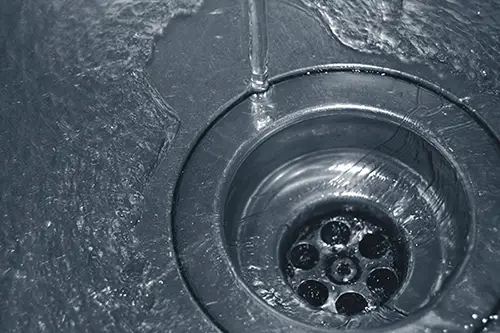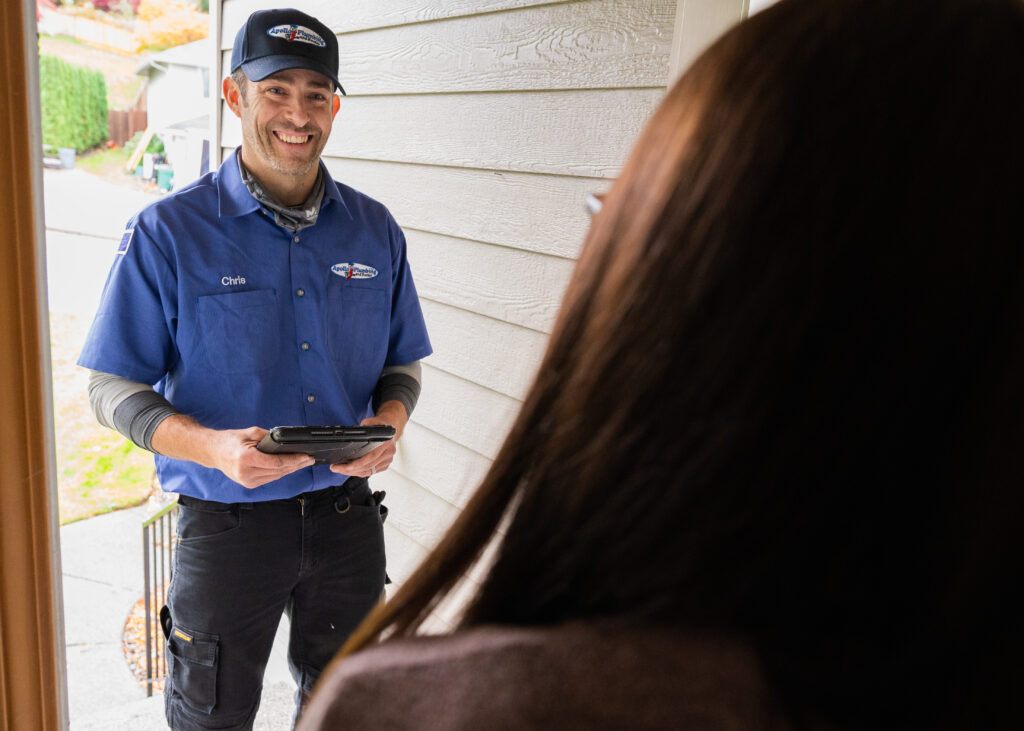 It may seem like your garbage disposal, drains and even toilets can accommodate a variety of waste and unwanted items. Through these plumbing features, you can easily watch those items be carried away and hopefully never think about them again. In reality, however, many types of trash and debris can pollute the water supply or cause damage to the water line. The types of plumbing repair work needed could range from draining cleaning with a snake or hydro jet to repiping the entire line. By paying attention to what you toss down the drain, you can avoid these issues. What should you avoid putting in your drains?
It may seem like your garbage disposal, drains and even toilets can accommodate a variety of waste and unwanted items. Through these plumbing features, you can easily watch those items be carried away and hopefully never think about them again. In reality, however, many types of trash and debris can pollute the water supply or cause damage to the water line. The types of plumbing repair work needed could range from draining cleaning with a snake or hydro jet to repiping the entire line. By paying attention to what you toss down the drain, you can avoid these issues. What should you avoid putting in your drains?
Grease and Oil
After you prepare many types of meat on the stove or in the oven, you may be left with a pot or pan full of grease. While the grease may be warm and liquid at the moment, it can congeal as it grows cooler. This can block the pipe. Even liquid oils, like vegetable or olive oil, can line the inside of the pipe and collect other debris. Eventually, this can lead to a clog. Always dispose of grease, oil and fatty foods in the trash can.
Coffee Grounds
It may seem like fine coffee grounds would not be able to harm the plumbing system. However, their unique physical qualities may make them difficult to evacuate from the pipes. When other matter is already partially blocking the pipes, coffee grounds can easily get stuck and contribute to the problem. Toss used coffee grounds into the trash bin.
Egg Shells
Egg shells also need to be disposed of in solid waste trash. Your garbage disposal could easily chop up the thin, brittle shells. However, shells often stick to the inside of pipes. They can also get caught up in a developing clog relatively easily.
Flour
When flour mixes with water, it creates a heavy, thick paste. This paste will not easily pass through the pipes, and this means that it can add to a developing clog. More than that, when the pipe is not used for a few hours, any lingering paste could harden on the interior of the pipe. Toss both dry flour and any flour dough remnants into the trash rather than in the garbage disposal.
Uncooked Rice and Pasta
When rice and pasta get wet, they absorb the moisture and expand. When many pieces and rice or pasta go down the drain together, they can collectively grow large enough to clog the pipe. In addition, they become very sticky and can grip the interior of the pipe. If you have unused pasta and rice that you do not want to save for later, ensure that it finds its place in the trash can rather than in the drain.
Tampons
Many women believe that tampons are flushable products. While some of the applicators may be designed as flushable items, tampons should never be tossed into the toilet. These products are designed to be both highly durable and very absorbent. As they absorb water, they can completely block the entire interior of the pipe and create a messy situation.
Wipes
From baby wipes and makeup wipes to cleaning wipes and more, these toss-and-dispose products are designed with convenience in mind. Flushing used wipes down the toilet may seem like a great way to get rid of them, but this should be avoided. Wipes generally will not decompose easily in water. Instead, they will retain their composition and may block the water line after they have been flushed.
Paper Towels
Since you can flush toilet paper, you may assume that you can also flush paper towels. In reality, however, the composition of paper towels is different. Many paper towels are comprised of recycled paper, which will not easily break down in the water. Like wipes, paper towels can retain their thick composition and can get trapped in a pipe if you flush them.
Cotton Swabs
Given the small size of cotton balls, you could assume that they would flush down the toilet easily enough. However, like tampons, cotton balls expand in water. A single cotton ball could pass through a straight pipe, but it could get trapped as it rounds a corner. Multiple cotton balls and even Q-tips may be more problematic even when traveling down straight stretches of a pipe.
Kitty Litter
Disposing of your cat’s waste in the toilet may seem like a natural move. After all, the toilet accommodates your own waste. However, kitty litter clumps around both urine and feces, so it will be washed through the pipes when you flush your cat’s waste. When kitty litter gets wet, it sticks together. This makes it easier for you to clean out the litter box. However, this clumping property can easily lead to a clogged pipe if you flush it down the drain.
Hair
Most people do not intend for their hair to run down the sink, tub or shower drain. Hair strands naturally fall out as you brush and wash your hair. Individual hairs are not a problem, and many of them will work their way through the pipe without concern. However, some of these hairs may start to accumulate. When this happens, they can collect body oils, soap residue and other hairs that run through the drain. The result is a blockage that slowly grows in size and eventually completely blocks the pipe. Consider using a catcher to capture the hair before it flows down the drain.
Produce Stickers
Before you rinse off your produce in the sink, you should always peel off the sticker and dispose of it in the trash can. Otherwise, it may work itself down the drain. There, it can get trapped in a developing blockage and contribute to the issue. These vinyl or plastic stickers may also find their way to the water treatment plant. There, they may damage a pump or filter.
Unused Medicine
Commonly, people find themselves with expired medications or extra medications that are no longer needed. Flushing medications seems like a convenient way to get rid of them and to ensure that other people do not have access to them. However, after you flush a medication, it can enter the public water supply. This can actually be detrimental to many others in the community. As an alternative, consider taking your unused medications to the pharmacy to dispose of them safely.
Harsh Cleaning Products
Some home cleaning products as well as drain cleaning products are comprised of harsh and even toxic ingredients. These products can damage the public water supply and could eventually work their way into marine habitats. There, they could have fatal consequences. In addition, many of these products are detrimental to your pipes. When they are used regularly, they can cause significant erosion and may result in the need for repiping. Consider using natural cleaning products and safe drain cleaning solutions, such as hydro jetting and snaking, as alternatives.
Paint
Whether you are cleaning up after an art project or a home improvement project, you should not clean your brushes in the sink. You also should not pour unused paint down the drain. The chemicals in paint can damage marine environments and may be toxic to wildlife. In addition, the paint can cling to the interior of your pipes and may play a role in developing clogs.

Schedule Plumbing Repair Service Today
Are you already dealing with a clogged pipe or a backed-up toilet? At Apollo Plumbing, our experts are ready to respond to your request for plumbing repair service. When we arrive, we will quickly assess the situation to determine if snaking, hydro jet drain cleaning or repiping would be the right solution for your home. We always provide a fair estimate upfront. Contact Apollo Plumbing today to schedule an appointment.
